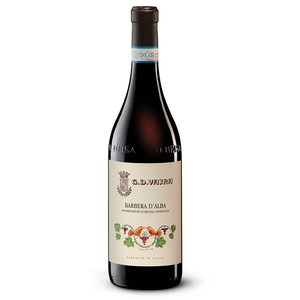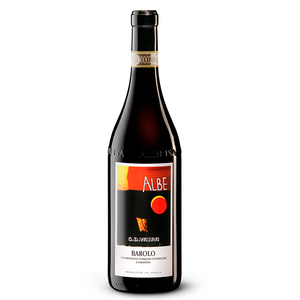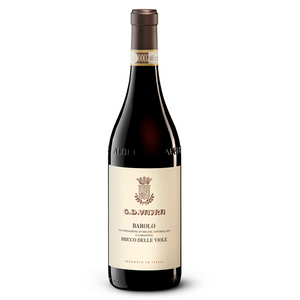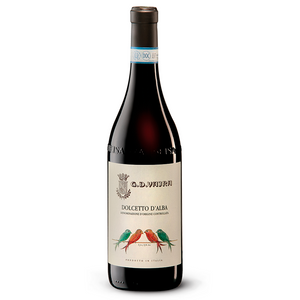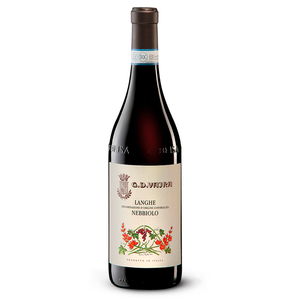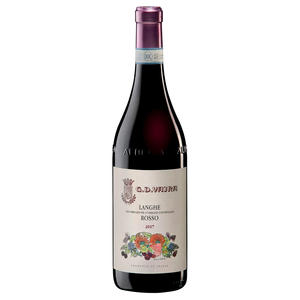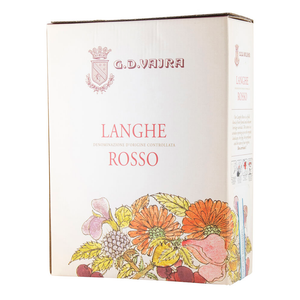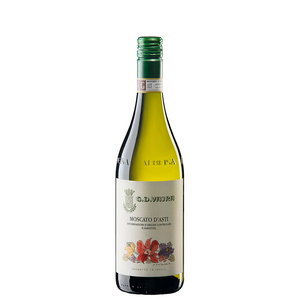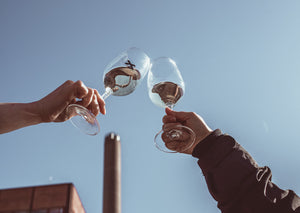
G.D. Vajra
It all started with the May 1968 student protests. Together with his peers, 15-year-old Aldo Vaira, who grew up in a working-class family, decided to protest against the traditional Italian society based on capitalism and patriarchy. In 1968, the streets of Turin and other university towns were filled with youth who wanted a change in the prevailing situation. Like many other countries' simultaneous protests, Sessantotto left its mark on Italian society, but the event also had a long-term impact on Aldo's life. After hearing about his son's participation in the protests, Aldo's father Giuseppe Domenico decided to send him to his grandparents' 7-hectare farm in Barolo for the summer, sheltered far from the protests happening in the city.
With the help of his grandparents, Aldo was able to spend his time not only in the cornfields and cow pastures, but also among the vines, of which 0,3 hectares' worth grew on the farm. The feeling of freedom created by being in the middle of nature surprised Aldo, but even more so his decision to stay in the Barolo region surprised this family. The migration of the 1970s went from the countryside to the cities, but Aldo decided otherwise and in 1971 joined the Suolo e Salute community, becoming a pioneer of organic production and started planting more vines. The very next year, in a very challenging year with weather conditions, Aldo bottled his first own wines. While Aldo was still a minor at the time, his father founded the family farm under his own name, and this is how GD Vajra was born in 1972.
At the Vajra farm, the pioneer spirit has continued even after the 1970s. In the year 1979 Aldo, with the selection massale vine succession, planted Dolcetto on the current Barolo cru farms Coste di Rose and Fossati. No other producer makes Dolcetto where Barolo can be produced! In the early 1980s, Aldo met his future wife Milena, who shared the inspiration for developing the space. In 1980, the family revived the region's original variety, Freisa, planted the first Riesling vines in the Piedmont region in 1985, and were among the first to decide to abandon the abundant use of French oak characteristic of the time, introduced by the Barolo Boys movement, in order to create elegant and refined wines. Aldo started to be called the most modern of traditional producers and the most traditional of modern producers. The Vajra family grew with Giuseppe (1985), Francesca (1987) and Isidoro (1990), and today the whole family is involved in the company's operations. Isidoro is responsible for the farm's gardens, Francesca for the tasting room, and Giuseppe for wine production and sales. The family trusts the Austrian composer Gustav Mahler's saying " tradition is not keeping the ashes, but passing the fire forward".
Vajra sanctuaries are located high above sea level at an altitude of up to 400 meters. The farm's winemaking philosophy and the conditions of the vineyards culminate in the Bricco delle Viole vineyard planted by my grandfather in 1949 and the Barolo produced from it. The cool air brought by the Alps and the proximity of the Tanaro river create an optimally long growing season for the south-facing vineyard, and the vineyard produces a long-lived wine cherished by wine lovers year after year. Bricco delle Viole's vineyard consisting of limestone and clay is indeed a model for all other vineyards on the estate and the wines produced from them. Today, the estate consists of about 40 hectares, of which 10 hectares are dedicated to Nebbiolo. The vineyard areas are located in the municipalities of Barolo, Fossat, Coste de Vergne, La Volta and Sino. Located in the village of Barolo, the Coste di Rose vineyard is sandstone, which produces perfumed and elegant wines. The iron-rich Ravera orchard grows in an amphitheater-like manner, which is why the vineyard's wines have density and strength. Bricco delle Viole, on the other hand, is the winery that produces the producer's most acidic and precise wines.
In the cellars of the farm, we rely on the region's long winemaking tradition and the wines are allowed to mature in old and large Slavonian oak barrels of at least 25 hectoliters for a long time, according to tradition. However, the oak is not allowed to mask the wines too much, so with the help of modern extraction technology (submerged cap), the farm's wines are traditional and elegant, and they do not have to be aged for decades before they can be enjoyed. Purity, freshness and elegance are the guiding terms for the farm's winemaking.
The producer has a Sistema di Qualità Nazionale Produzione Integrata certificate. The farm's total annual production is 600,000-700,000 bottles.


